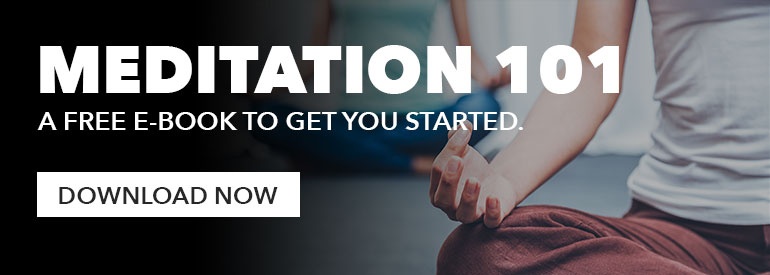 Reading Time: 8 minutes
Reading Time: 8 minutesI recently attended a popular fitness conference that I go to every year. The presentations and workshops are always great, but often the best learning experiences come from casual conversations.
When we’re at this conference, my wife and I love waking up early and enjoying the hotel hot tub. One morning, we started talking to a gentleman who made a career switch later in life to become a personal trainer. He is passionate about helping adults lose weight, age gracefully, and enjoy the activities they love.
This new personal trainer explained to us how hard it is to get people to make the right choices. He had lost over 100 pounds, so this was very personal to him. His approach? He ate cucumbers and radishes, and counted how many calories he ate and converted that to how much exercise he must do to keep himself slim.
While this approach can work, it’s not something I recommend. When this man found out I was a registered dietitian and personal trainer, he asked me, “Well, what would you recommend instead?”
Note: I should have just said that I work in retail or finances. That’s my go-to answer for plane rides, as inevitably I spend the first hour of the flight hearing about how the uncle of the person next to me lost weight on some diet. It’s worse for my wife, a physical therapist. Everyone who sits next to her always has something that hurts.
Joking aside, the man had a good question for me. What should he be doing to help people better?
I’ve had a fifteen-year career helping people improve their health, and I didn’t have a quick and easy elevator pitch for this man (or hot tub pitch, in this case). I have a system, I have programs, I have answers. Yet, I had to think about what is the most important way to describe how to help people change their health.
A prisoner’s dilemma, as my good friend Dan John calls it, is when you can only do a few things. What would they be? This really makes you think about what is absolutely important. Time is our most valuable resource, and adding something new means taking away from something else. Therefore, the options we choose to help you toward your health goals must have maximal impact.
After some reflection, the answer was obvious to me: know what you want and forgive yourself along the way. Everything else will fall into place as needed. Without these two things, though, it is hard to change your health.
Let’s break that down into what it really means and the actionable steps you can take.
Step 1: Know What You Want
It sounds easy, but knowing what you want can be more difficult than you imagine. “Fat loss,” “more energy,” and “sports performance” are the things I commonly hear in my business. Those things, however, are just goals. We must go one step above and one step below goals to really dig into what you want and how to get there.
Our action steps are prioritized in this order:
- Values
- Goals
- Actions
Values are big things, like making memories with your family, helping a cause or charity, spending quality time with friends, or traveling the world with your significant other. Goals are small things you need to accomplish to live your values. Actionable steps are things you need to do to reach your goals. Let’s work through some examples.
Example A: You Think You Want to Improve Performance
I work with a lot of golfers. Typically, a member will walk in my club and first say he wants to improve his golf game and lose a little weight. After talking for a bit, we end up looking at the situation in a different way:
- Values: To spend time with friends, to be outside and get fresh air, and to do this as long as possible.
- Goals: Improve golf game to enjoy it more, get stronger, work on rotational power and stability, improve joint mobility, lose ten pounds.
- Actions: Commit to a workout program three times a week, do ten minutes of stretches before golf, begin tracking snack habits, drink an extra bottle of water in the morning, improve sleep by a half-hour more per night.
The problem is that most of us begin with actions, and they may not even be the correct ones. Without a road-map, taking action is basically doing effort while hoping that we’re on the correct route. But we don’t have to guess if we first write down what our values and goals are.
Example B: You Think You Want to Lose Weight
A woman walked in and wanted to lose thirty pounds. She had already began running four times a week, lifting three times a week, taking multiple supplements, and now was on Advil because her knee was aching.
I commended her for taking action, but explained that action without values and goals is just a guess. Digging deeper, we found that family was everything to her. Her daughter was getting married, and she wanted to be in great shape and feel great for the wedding and beyond. Those were her values. The goal was to lose weight and feel confident. When discussing action steps, we realized that her job was stressful, her sleep averaged only six hours, and her water intake was low on some days.
The new action plan we came up with was to reduce workouts, focus on stress management, and get a hydration routine. We reduced caffeine to only mornings, dimmed lights in the evening, sat down for each meal, walked after dinner, and used a water bottle that she had to drink and refill three times a day. Once these things became easier, we were in a much better position to build on and finish off the last of her weight-loss goals before the wedding.
Step 2: That Whole Forgiveness Part
The biggest secret to any health change is staying with it long enough. And if you aren’t clear on the real reason you want to change, motivation and desire will fade quickly. All the things you are doing won’t mean anything unless they get you closer to what you really want.
If staying with it long enough is the big “secret,” you also need to know that things will always happen to derail you. This is where forgiving yourself is extremely important so you stay with your desires long enough to achieve them.
Cake in the office, not being diligent on workout routines, vacations, and eating too much of this or that has nothing to do with your success. Something is guaranteed to happen. How you react to roadblocks will decide your path.
Too often I see people do great in the beginning, only to have a few bad days. Instead of bouncing back and learning from it, they feel disappointed in themselves for lacking willpower, motivation, and discipline. They must be lazy, and don’t deserve results. This negative thinking leads back to old habits. In truth, success was right around the corner.
You must commit to forgiving yourself for mistakes that are guaranteed to happen. In fact, they aren’t mistakes at all. You are human, and in this world, nothing goes perfectly. That’s the beauty of it.
This isn’t all of it, though. Once you can agree to forgive yourself, you have to think about others, as well. In every office, there’s always the cookie person. They are being generous by bringing in sweets for everyone — until you want to change your lifestyle, then that person becomes the enemy. How could they try to derail you like that? Oh, and what about your spouse who brought home pizza and donuts?
You control your own path. Other people who may seem to be getting in the way are usually well-intentioned friends or family who may not realize they aren’t helping. If grandma bakes you cookies, eat the darn cookie and say thank you. Then forgive her, forgive yourself, and move on.
What You Can Do Today
Think about why you are even reading this article. Obviously, you are currently doing or thinking about making a change to your health. Why?
- List out your values. What two to five things are so important that you would change your life to protect them?
- From here, list out two to five goals that would help you live out your values. Think carefully, as I define “stress” as doing things that don’t align with your values. If you are pursuing a weight goal, a change in blood test markers, or any other goal, make sure making those changes will align with one or more of your values.
- Decide on action steps for each goal. Add them into your routine as you feel confident. The Whole Life Challenge 7 Daily Habits are great for this. And, remember, each action step you take has to be in agreement with one or more of your values.
If your values, goals, and action steps align, you’ll feel extremely confident about what you are doing. if not, review all three and adjust accordingly. Then get to work.
Know What You Want and Forgive Yourself
As you proceed on your health and fitness journey, be prepared for perceived failure and realize it’s just a part of the process. You now have a road-map, so get back on course and keep going. Make a practice of forgiving yourself and others along the way.
Remember, most of what you hear on the internet or through friends are action steps toward a goal that may or may not be yours. These goals and action steps may or may not be the right ones for you. Action steps can be noise that cloud the real process until you take a step back and examine your values. Carbs, fats, supplements, diets, workouts, ratios, products, tips, and hacks are all useless tools unless you know why you need these things.
And thanks to that man at the hotel, I have my hot tub pitch now, and it’s much clearer.










